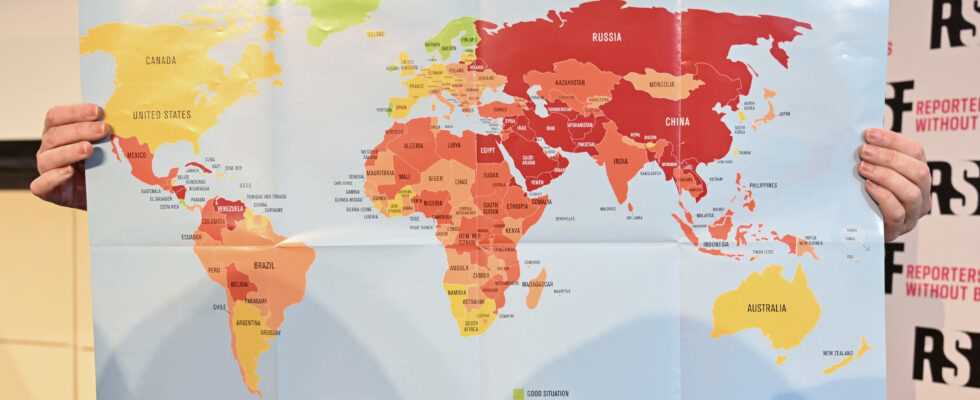Louise Bernard, edited by Solène Delinger
modified to
10:47 a.m., May 04, 2022
Reporters Without Borders has published its world ranking of press freedom. International events such as Russia’s invasion of Ukraine have considerably deteriorated the situation of journalism in Russia. The military coup in Mali, where French reporter Olivier Dubois was kidnapped, also weighed on the country’s already very low rating.
Out of 180 countries studied, 12 are on the “very serious situation” red list of the Reporters Without Borders world press freedom ranking. A sad record. Among them, Russia. The non-governmental organization RSF rightly denounces the propaganda war that served to prepare the Russian invasion of Ukraine. The NGO also notes the fall of Hong Kong in its ranking, that of Mali, and that of Afghanistan also with the return of the Taliban to power.
A “renew of social tensions”
Analysis of this ranking reveals, according to RSF, a “double polarization”. At the global level, already: there is a real gap, an “asymmetry” between “open societies and the despotic regimes that control their media”. A gap that accentuates international tensions.
And then there is also polarization within democracies. This polarization of information leads to more divided societies. Reporters Without Borders gives the example of the United States and France which, according to it, are experiencing a “renewed social tension”, “accelerated” by new opinion media and social networks.
